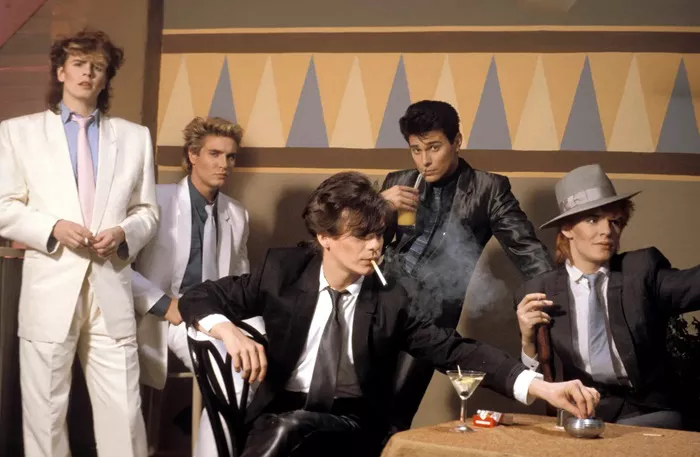Rock music has a significant following in Mexico, a country rich in musical heritage. This article explores the reasons behind the popularity of rock music among Mexicans, delving into the historical, cultural, and social factors that have contributed to this phenomenon. From the genre’s early roots to its modern-day presence, we will uncover why rock music resonates so deeply within Mexican society.
Historical Roots of Rock Music in Mexico
Early Influence and Adoption
Rock music first made its way to Mexico in the 1950s, influenced by the rock ‘n’ roll revolution in the United States. Artists like Elvis Presley and Chuck Berry had a profound impact on Mexican youth, who were drawn to the rebellious spirit and energetic sound of rock music. Mexican musicians began to emulate these styles, leading to the birth of “Rock and Roll en Español.”
The Rise of Mexican Rock Bands
By the 1960s, Mexico saw the emergence of its own rock bands, such as Los Locos del Ritmo and Los Teen Tops. These bands adapted rock music to Spanish lyrics, creating a unique blend that resonated with the local audience. The adaptation of rock music into the Spanish language allowed for a greater connection with Mexican listeners, fostering a sense of identity and pride in the genre.
Cultural Resonance of Rock Music
Expression of Rebellion and Individuality
Rock music has always been associated with themes of rebellion and individuality. In Mexico, this resonated strongly with the youth, particularly during periods of social and political unrest. The genre provided an outlet for expressing dissent and challenging the status quo, making it a powerful tool for social commentary and activism.
Fusion with Traditional Mexican Music
Another reason for the popularity of rock music in Mexico is its ability to fuse with traditional Mexican music styles. Bands like Café Tacuba and Molotov have successfully blended rock with genres such as mariachi, norteño, and cumbia. This fusion not only preserves cultural heritage but also makes rock music more relatable and appealing to the Mexican audience.
Social Factors Influencing Popularity
Impact of Media and Technology
The advent of television, radio, and later the internet played a crucial role in the dissemination of rock music in Mexico. Shows like “La Hora de los Beatles” and “Siempre en Domingo” featured rock bands and introduced the genre to a wider audience. Additionally, music videos and online streaming platforms have made rock music more accessible, contributing to its sustained popularity.
Influence of Festivals and Live Performances
Music festivals and live performances have also significantly contributed to the love for rock music in Mexico. Events like Vive Latino, Corona Capital, and Hell and Heaven Metal Fest attract thousands of rock enthusiasts from across the country. These festivals provide a platform for both local and international rock bands, fostering a vibrant rock music culture.
Rock Music as a Form of Social Identity
Generational Influence
Rock music in Mexico transcends generations. Older generations who grew up during the early days of rock music often pass down their love for the genre to their children and grandchildren. This generational influence helps maintain rock music’s relevance and ensures its continued presence in Mexican culture.
Symbol of Modernity and Global Connection
Rock music also represents modernity and a connection to global culture. For many Mexicans, embracing rock music is a way to engage with global trends while still maintaining their unique cultural identity. This balance of local and global influences makes rock music a powerful symbol of contemporary Mexican society.
The Evolution of Rock Music in Mexico
Modern Rock Bands and New Trends
The evolution of rock music in Mexico has seen the emergence of modern rock bands and new musical trends. Bands like Zoé, Enjambre, and Porter continue to innovate within the genre, incorporating elements of electronic music, psychedelia, and indie rock. These modern interpretations of rock music keep the genre fresh and exciting for new audiences.
Rock Music and Social Movements
In recent years, rock music has continued to play a role in social movements and political activism in Mexico. Artists use their music to address issues such as corruption, inequality, and human rights. This ongoing relevance of rock music as a form of protest and social commentary reinforces its importance in Mexican society.
See Also: How Did Joan Jett’s Punk Rock Sass Set Her Apart in the Music Industry?
Conclusion
The popularity of rock music in Mexico is the result of a complex interplay of historical, cultural, and social factors. From its early adoption and adaptation to its fusion with traditional music and its role in social movements, rock music has carved out a significant place in Mexican culture. Its ability to resonate across generations, symbolize modernity, and provide a platform for social commentary ensures that rock music will continue to be a beloved genre in Mexico for years to come.

